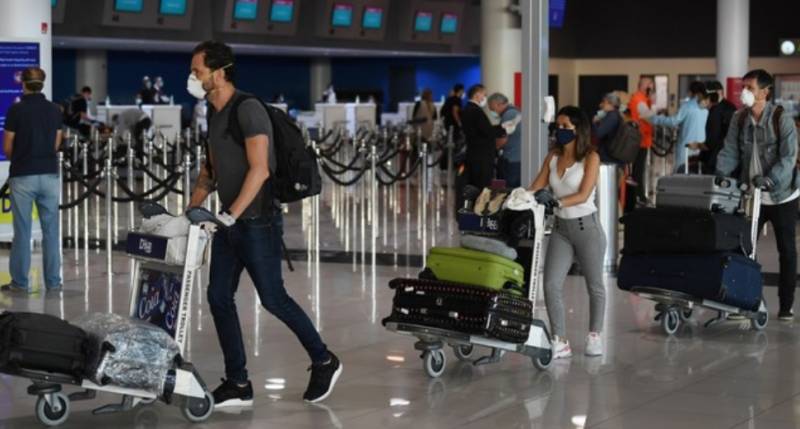Airlines face $253b losses as travellers to drop by 1.2b by Sept
Europe, Asia-Pacific will see greatest hit to capacity and revenue

Stay tuned with 24 News HD Android App

The coronavirus pandemic could mean 1.2 billion fewer airline passengers worldwide by September 2020, the International Civil Aviation Organization said.
Coronavirus has led to widespread flight cancellations and grounding of aircraft.
The "most substantial reduction in passenger numbers," the UN agency said in a statement, "is expected to be in Europe, especially during its peak summer travel season, followed by the Asia-Pacific."
Airline capacity could also be significantly slashed, it said, resulting in a drop in airline revenues in the first nine months of the year by as much as $160-253 billion.
The projections are more dire than the ICAO's initial estimates in February when the outbreak seemed to be mostly localized in China, where almost all of the first 1,400 COVID-19 deaths were recorded.
The ICAO said then that the airline industry was facing a $4-5 billion drop in revenue.
See also: PIA special flights to bring back 100s from Australia, S Korea
According to ICAO baseline scenario, referencing originally planned capacity, passenger numbers could have risen by 64 million in the first nine months of this year, while revenues could have increased by $15 billion.
The ICAO report also details a 19% year-on-year drop in air freight for the month of March, measured in tonnes transported, for a 22% drop in air freight revenues as the grounding of passenger aircraft worldwide led to the loss of belly capacity. Belly cargo is down 31% while all freighter capacity is up 9%.
It also estimates that so far in April global passenger capacity is down 91%.
ICAO’s estimates vary across two scenarios - one a V-shaped recovery with first signs of recovery in late May and the other a U-shaped path with a restart of air travel in the third quarter or later.
The 2003 SARS outbreak had a V-shaped impact on aviation, ICAO says. It notes, however, that the impact of Covid-19 has already surpassed that outbreak, which was largely confined to the Asia-Pacific region.
“The 6‐month recovery path of SARS might not apply to today’s situation,” the report cautions.
